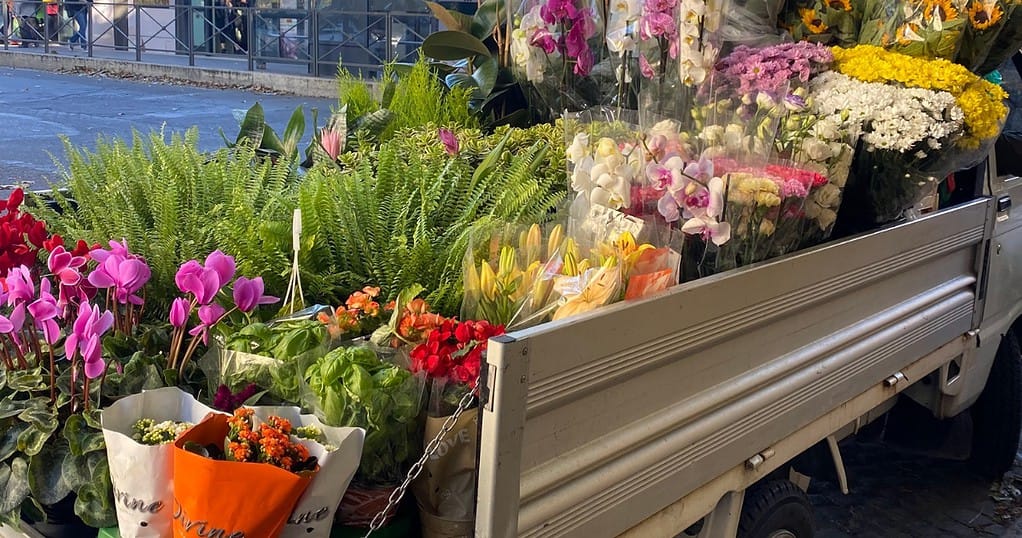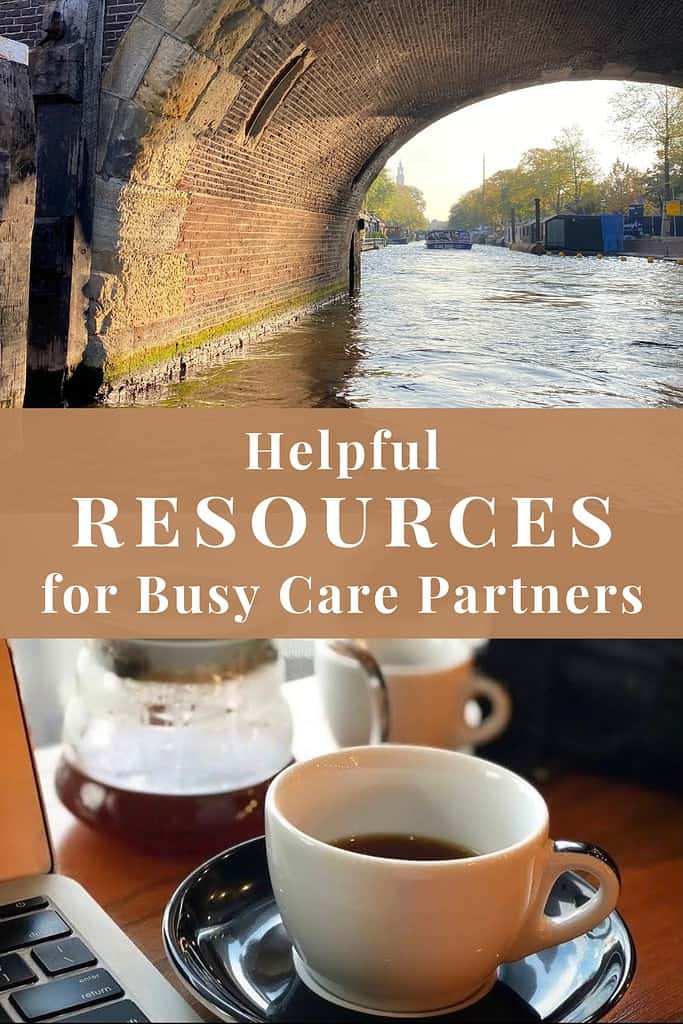Caregivers need support. Here is a list of resources so that you can take steps to care for yourself too!

I hope you find these resources for caregivers helpful, and I will continue to update this page as necessary. Sending you my love and support.
General – Caregiver Support
Here are some general caregiver resources to get you started.
AARP – the American Association of Retired Persons is dedicated to enhancing the quality of life for all as we age. We lead positive social change and deliver value to members through advocacy, service, and information. Making things better for society and playing a positive role in communities of all kinds.
Caregiver Action Network – CAN is the nation’s leading family caregiver organization working to improve the quality of life for the more than 90 million Americans who care for loved ones with chronic conditions, disabilities, diseases, or the frailties of old age. CAN serves a broad spectrum of family caregivers. Ranging from the parents of children with significant health needs to the families and friends of wounded soldiers. From a young couple dealing with a diagnosis of MS, to adult children caring for parents with Alzheimer’s disease.
Family Caregiver Alliance – provides services to family caregivers of adults with physical and cognitive impairments. Such as Parkinson’s, stroke, Alzheimer’s, and other types of dementia. Services include assessment, care planning, direct care skills, wellness programs, respite services, and legal financial consultation vouchers.
National Family Caregiver Support Program (NFCSP) – provides grants to States and Territories based on their share of the population aged 70+. Helping to fund a range of supports. Assisting family and informal caregivers to care for their loved ones at home for as long as possible.
Alzheimer’s & Dementia – Caregiver Support
Here are some resources for caregivers who are helping loved ones with any kind of Alzheimer’s or dementia-type conditions.
Alzheimer’s Association – works on a global, national, and local level to provide care and support for all those affected by Alzheimer’s and other dementias. Help through a professionally staffed 24/7 Helpline (1.800.272.3900). Face-to-face support groups and educational sessions in communities nationwide. And comprehensive online resources and information through the Alzheimer’s and Dementia Caregiver Center.
The Alzheimer’s Foundation of America – offers a national, toll-free helpline (866-232-8484) staffed by licensed social workers. Educational materials, a free quarterly magazine for caregivers, and “AFA Partners in Care” dementia care training for healthcare professionals. For more information about AFA, call 866-232-8484.
The Lewy Body Dementia Association (LBDA) – LBDA works to raise awareness of Lewy body dementia (LBD). Promoting scientific advances, and supporting people with LBD, their families, and caregivers.
Cancer – Caregiver Support
Here are some resources for caregivers who are helping loved ones with cancer.
National Cancer Institute – Family caregivers may be spouses, partners, children, relatives, or friends who help the patient with activities of daily living and health care needs at home. Many cancer patients today receive part of their care at home. People with cancer are living longer, and many patients want to be cared for at home as much as possible. It is important that the family caregiver is a part of the team right from the start. These resources are about adult family caregivers in cancer.
Cancer Support Community Affiliates & Support Groups for Caregivers – The Cancer Support Community Affiliate Network consists of 44 licensed affiliates, 170 locations, and a growing number of healthcare partnerships.
American Cancer Society – Caregivers Page – A cancer diagnosis affects close friends and family too. Find out what to expect if you become a caregiver for a person with cancer. Get tips for making sure that you take care of yourself as well. Resources available include information and support on How to Care for Someone with Cancer, Taking Care of Yourself as a Caregiver, How to Be Supportive to Someone with Cancer, When Your Child has Cancer, and a list of American Cancer Society Support Services and Programs for families who are managing cancer.
Help for Cancer Caregivers – A collaboration of Anthem, Inc., CancerCare, Caregiver Action Network, Indiana University, and Michigan State University, this website provides resources and news on caregiver caregiving.
Relief & Assistance – Caregiver Support
Here are resources to help caregivers find help, and get a bit of relief from the day-to-day of caring for a loved one with a chronic condition.
National Respite Network and Resource Center – assist and promote the development of quality respite and crisis care programs in the United States. Helps families locate respite and crisis care services in their communities. The ARCH National Respite Network includes the National Respite Locator. A service to help caregivers and professionals locate respite services in their community. The National Respite Coalition, is a service that advocates for preserving and promoting respite in policy and programs at the national, state, and local levels. And the Lifespan Respite Technical Assistance and Resource Center which is funded by the Administration for Community Living in the U.S. Department of Health and Human Services.
Lotsa Helping Hands – easily organize help for someone in need (ahem…care partner). A central place to coordinate meals and help for friends and family.
National Adult Day Services Association – Adult day services benefit family caregivers by enabling them to remain in the workforce or receive needed respite. And by providing them with direct services (e.g., educational programs, support groups). They provide cost-effective care while supporting individual autonomy. Allowing individuals to “age in place,” and enhancing the quality of life for both participants and family caregivers.
National Caregivers Library – one of the largest single sources of information and tools for caregivers and seniors in the country. It makes resources available to caregivers for free through alliances with professionals, businesses, and other organizations who serve seniors and their caregivers with a variety of products and services.
Well Spouse Association – supports and advocates for the people who care for a chronically ill or disabled husband, wife, or partner.
Financial & Legal – Caregiver Support
Here are resources to help caregivers manage their own financial and legal responsibilities, along with their family and loved ones.
National Association of Areas on Aging – a 501(c)(3) membership association. Representing America’s national network of 622 Area Agencies on Aging (AAAs). Providing a voice in the nation’s capital for the more than 250 Title VI Native American aging programs.
Eldercare Locator – https://eldercare.acl.gov/Public/About/Aging_Network/AAA.aspx
National Academy of Elder Law Attorneys – find a lawyer in your area
WISER (Women’s Institute for a Secure Retirement) – a nonprofit organization that works to help women, educators, and policymakers understand the important issues surrounding women’s retirement income. WISER is the only organization to focus exclusively on the unique financial challenges that women face. They support women’s opportunities to secure adequate retirement income through research, programs, and partnerships. WISER has been the driving force behind a series of state and local events on long-term financial security. Aimed at leveling the playing field for women.

Additional Resources For Caregivers
Although not for everyone, here are some additional resources for caregivers, their loved ones, and the entire family.
U.S. Government Agencies
Administration for Community Living – https://acl.gov/
Medicare – https://www.medicare.gov/
Medicaid – https://www.medicaid.gov/
Medical Family Leave by State: https://www.ncsl.org/aboutus.aspx
National Institute on Aging – https://www.nia.nih.gov/
Veterans Affairs – https://www.va.gov/
Eldercare Support
Here are resources to help manage and keep your loved one living in their own home, as long as it is safe and possible.
Eldercare Locator – a public service of the U.S. Administration on Aging. A resource that enables older persons to live independently in their communities. The service links those who need assistance with state and local area agencies on aging. As well as community-based organizations that serve older adults and their caregivers.
Next Step In Care – provides easy-to-use guides to help family caregivers and health care providers work closely together to plan and implement safe and smooth transitions for chronically or seriously ill patients.
End-of-Life Planning
Here are resources for end-of-life planning, and helping your loved one age, and die, with dignity.
Aging with Dignity – For nearly 25 years Aging with Dignity has defended the God-given right of the elderly, disabled, and mentally ill. The right to have their human dignity respected and safeguarded, particularly in times of serious illness. With offices in Washington and Tallahassee, the nationally-acclaimed non-profit has touched the lives of tens of millions of Americans. And has influenced public policy at both the state and national levels.
National Hospice & Palliative Care – enhances and expands access to care that addresses holistic health and the well-being of communities.
The Conversation Project – a public engagement initiative of the Institute for Healthcare Improvement (IHI). Our goal which is both simple and transformative is to help everyone talk about their wishes for care through the end of life. So those wishes can be understood and respected.
